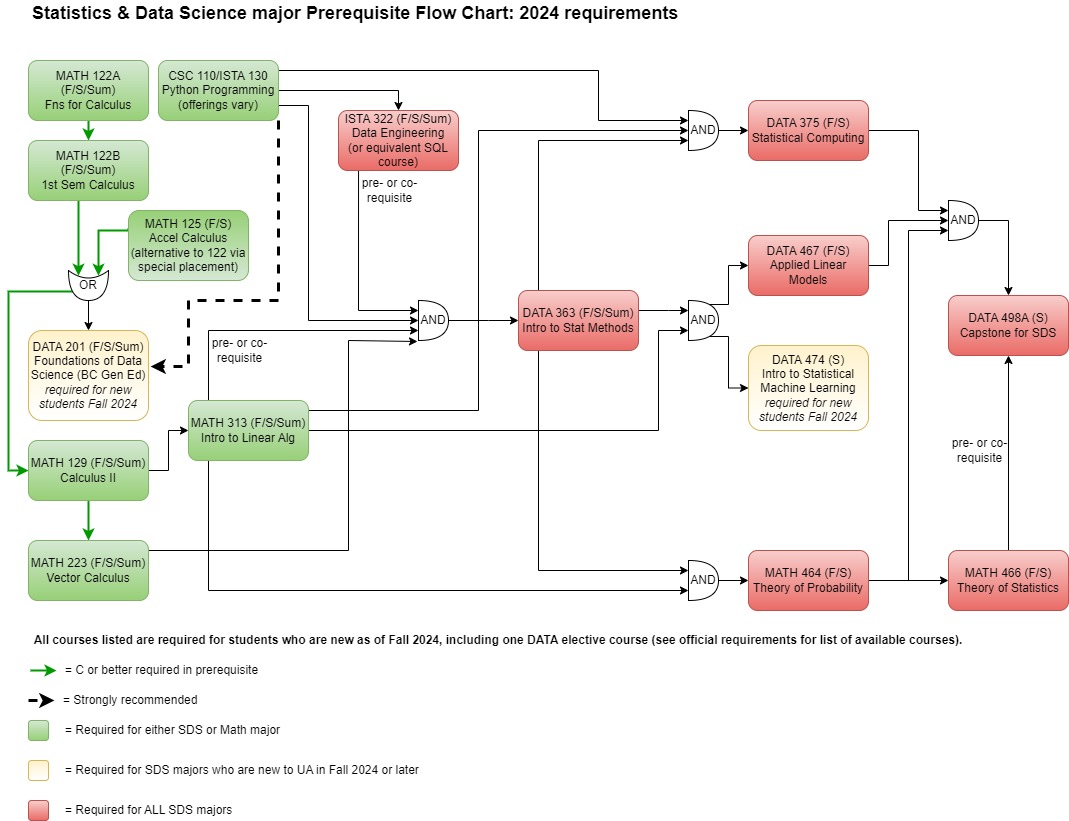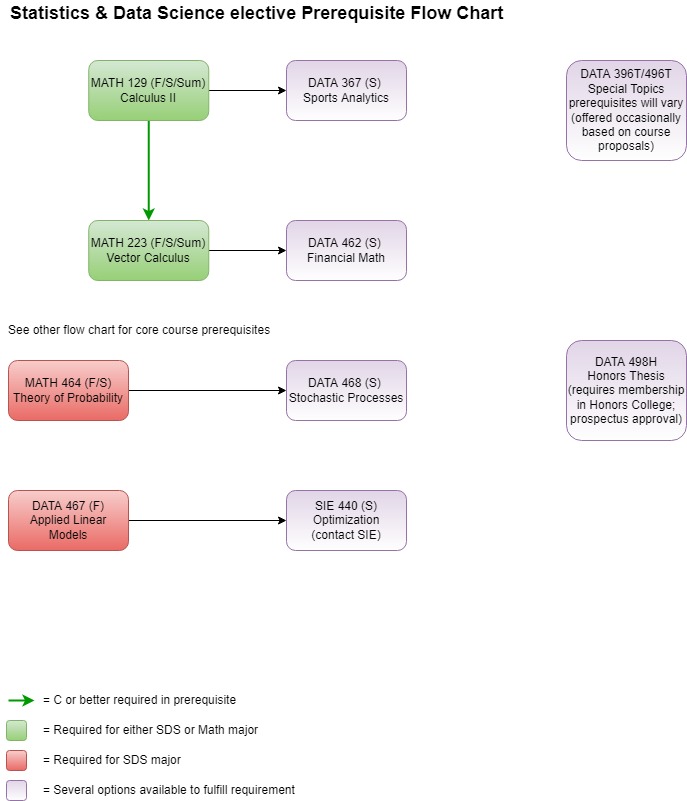Statistics & Data Science Major Course Requirements 2022
Overview
Both the Bachelor of Arts (B.A.) and the Bachelor of Science (B.S.) in Statistics & Data Science require the same set of supporting and core coursework. A minor in any subject outside the math department is required with this major.
The information and requirements given here apply to the 2022–2023 catalog. For other catalog years, please consult the archive.
The Academic Advising Report (ADVIP) gives complete degree requirements:
Note: this program was brand new for Fall 2018. All SDS majors are expected to meet with an advisor in the Math Center at least once a semester.
Supporting Python Programming Course Requirement
All SDS majors are required to complete a computer programming course in Python, regardless of the degree selected. Beginning in Spring 2023, enrollment in DATA 363 will require completion of a Python programming course, so students have programming background to help them pick up R and to ensure they are getting Python experience along the way. Choose one course:(*)
- CSC 110— Introduction to Computer Programming I
- ISTA 130— Computational Thinking and Doing
(*)Either CSC 110 or ISTA 130 is recommended for most students; CSC 120 or CSC 250 will also satisfy the requirement if available. As an alternative, qualified students may complete both ECE 175 AND BE 205.
Supporting Data Management Course
SDS graduates applying for jobs will find that SQL and Data Management skills are important. Beginning in Fall 2023, enrollment in DATA 363 will require completion or concurrent enrollment in a course that teaches SQL and Data Management. These skills will be helpful as students work on their projects in DATA 363. Take one course:
- ISTA 322— Data Engineering
Core Courses
- MATH 122A AND MATH 122B (1) or MATH 125— Calculus I
- MATH 129— Calculus II
- MATH 223— Vector Calculus
- MATH 313— Introduction to Linear Algebra (2)
- DATA 363— Introduction to Statistical Methods (3)
- DATA 375— Introduction to Statistical Computing
- MATH 464— Theory of Probability
- MATH 466— Theory of Statistics
- DATA 467 — Applied Linear Models (4)
- DATA 498A — Capstone for Statistics and Data Science (5)
- One upper-division statistics major elective.
(1)MATH 122A and MATH 122B are a single-semester sequence of courses that cover Calculus I.
(2) Either MATH 313 or MATH 310 may be used to fulfill this requirement in the SDS major. However, please note that 310 is no longer offered at UArizona. Students who completed MATH 215 prior to fall 2015 or who have transfer credit equivalent to MATH 215 will still fulfill this requirement, though they will not earn upper-division credit for the course.
(3) As of Fall 2024, the enrollment requirements for DATA 363 have changed. Students must complete MATH 129 and a Python course (CSC 110 or ISTA 130) prior to 363. In addition, MATH 313 and an SQL course (ISTA 322) must either be complete or in-progress in the same term as 363.
(4) DATA 467 is offered in-person in fall semesters. Provided we have sufficient enrollment, we plan to offer it online each spring.
(5) DATA 498A is currently primarily a spring course; as of 2024, we are attempting to offer it in fall semesters as well.
Statistics & Data Science Major Elective Courses
The SDS major requires one upper-division elective course. The current courses that will be accepted toward this requirement are listed below. More course options may be added as the program grows; see your academic advisor for details.
Course options:
- DATA 367— Statistical Methods in Sports Analytics
- DATA 396T— Topics in Undergraduate Statistics & Data Science(*)
- DATA 462— Financial Math
- DATA 468— Applied Stochastic Processes
- DATA 496T— Advanced Topics in Undergraduate Statistics & Data Science(*)
- DATA 498H— Honors Thesis(**)
- SIE 440— Survey of Optimization Methods

